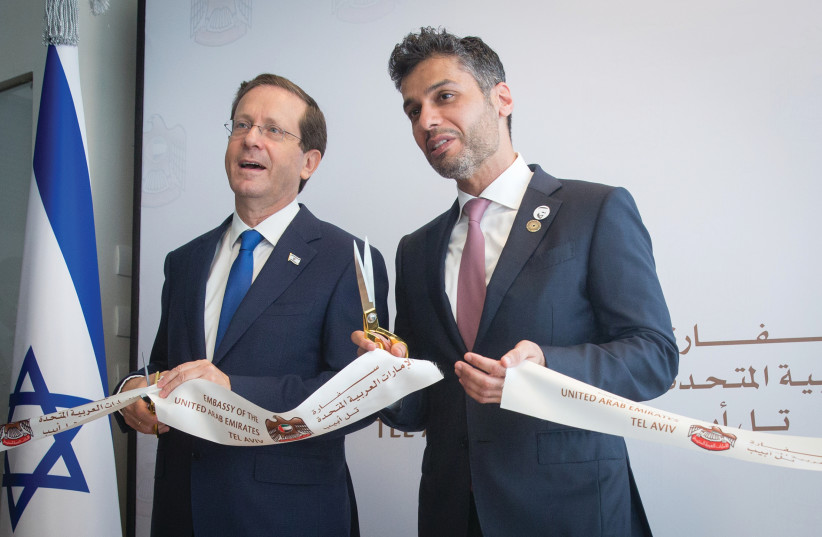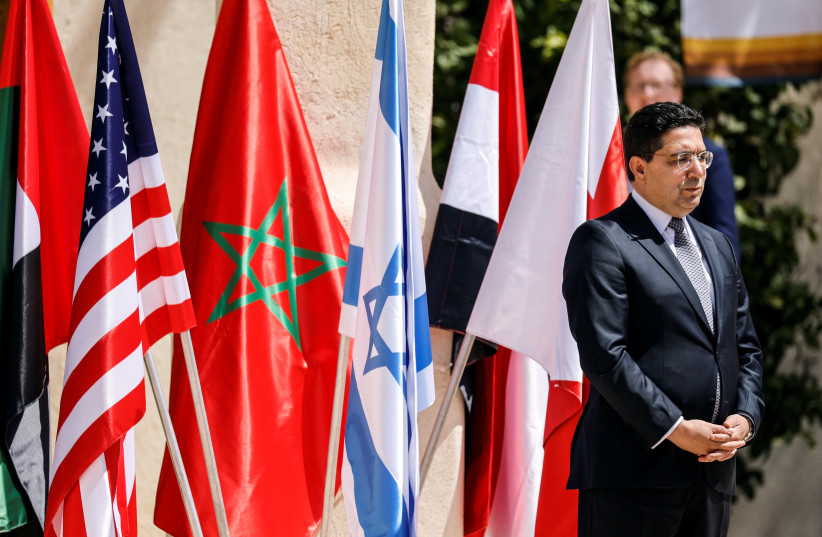The UAE reportedly said that it would not buy Israeli defense systems until it felt that Netanyahu can control his government.

Prime Minister Benjamin Netanyahu’s Office denied a report by Channel 12 of a crisis in its relations with the United Arab Emirates due to the actions of Finance Minister Bezalel Smotrich and National Security Minister Itamar Ben-Gvir.
“The news is without any basis, Israel and the UAE maintain fruitful political relations in all fields, including today,” the PMO stated.
Channel 12 reported on Sunday night that the UAE plans to halt its purchase of Israeli defense systems to protest the action of Netanyahu’s new government.
Emirati President, Sheikh Mohamed bin Zayed told Israeli officials that “until we can be sure that Prime Minister Netanyahu has a government he can control, we will not be able to jointly operate.”
The report came just two days after Iran and Saudi Arabia reestablished diplomatic ties after seven years, a move that appeared to make it more difficult for Netanyahu to achieve its goal of normalizing ties with Saudi Arabia.

Netanyahu has yet to publicly comment on the Iranian-Saudi agreement even though parliamentarians from the opposition — including former prime ministers Yair Lapid and Naftali Bennett as well as former Defense Minister Benny Gantz — have warned that it moves one of the main defensive shields Israel has against Iran. They claimed that the deal would make it difficult for Israel to build a regional defense architecture with the Gulf states against Iran.
How has Netanyahu’s diplomacy progressed?
Netanyahu returned to office at the end of December with a policy objective of strengthening the 2020 Abraham Accords, which he himself had put in place during his last tenure in office. Under the auspices of the US-brokered Accords, Israel had normalized ties with four Arab countries: the United Arab Emirates, Bahrain, Morocco and Sudan.
Netanyahu wants to fold other countries into those Accords. Israeli relations with the UAE have blossomed in the last three years and have been an example for Israel of what is possible with the Arab world.
The Foreign Ministry also denied the Channel 12 report, noting that ties between the two countries are “strong and solid.” Israeli reached an agreement with the UAE this month on the text of a customs agreement that will govern the free trade agreement between the two countries, it said. Once the free trade agreement comes into force it will “expand the economic, commercial and political relations between Israel and the UAE,” the Foreign Ministry said.
Content retrieved from: https://www.jpost.com/breaking-news/article-734108.